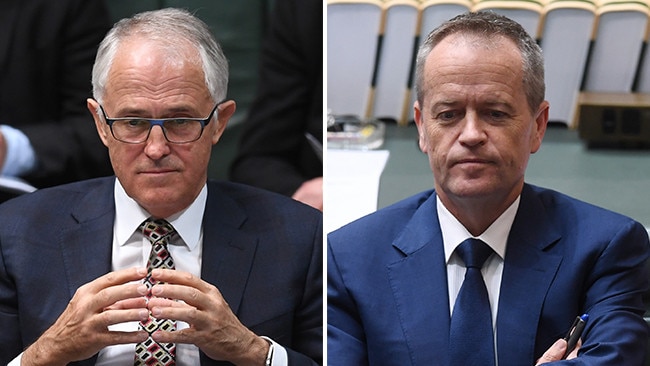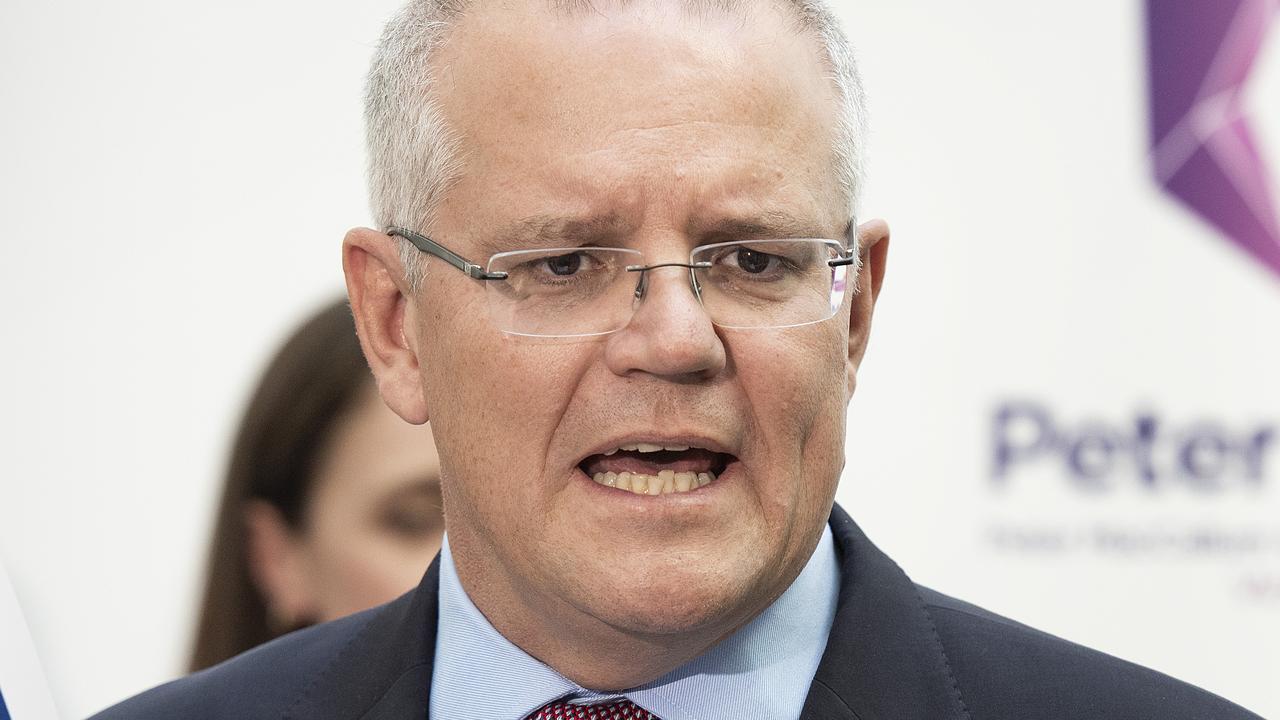Newspoll: Post-budget bounce still eludes PM
Labor has held onto its gains in voter support after weeks of fighting over the fairness of the budget.

The Turnbull government’s bid to win back disaffected voters with a “middle ground” budget has stalled, with the Coalition trailing Labor 47-53 per cent in two-party terms after weeks of campaigning for its economic plan.
The Coalition’s primary vote has flatlined as Malcolm Turnbull struggles to narrow Labor’s lead amid disputes over an $18.6 billion school funding boost and new taxes on workers and banks
The latest Newspoll, exclusively for The Australian, reveals a consolidation in Labor’s support, despite the government’s plan to claw back political ground by avoiding major new spending cuts in returning the budget to surplus.
Mr Turnbull has kept his advantage over Bill Shorten as preferred prime minister, 45 per cent to 33 per cent, and continued to improve his personal standing with voters, who appear more satisfied with him since the budget. But the government has been unable to turn this into a convincing gain against Labor, which has held its primary vote at 36 per cent while the Coalition has failed to win back voters who have shifted to Pauline Hanson’s One Nation.
Signalling disenchantment with both Labor and the Coalition, 28 per cent of voters continue to prefer minor parties, with 10 per cent primary vote support for the Greens, 9 per cent for One Nation and 9 per cent for others, including the Nick Xenophon Team.
The new findings dash the Turnbull government’s hopes for a political dividend from the budget, revealing identical results for the two major parties compared with the Newspoll survey conducted days after the economic statement.
Scott Morrison has urged all sides of parliament to “meet the government in the middle” and support key budget measures, signalling the government has shifted position to offer compromises and expects others do to the same.
After weeks of government campaigning for its school funding boost, its increase in the Medicare levy and its new levy on the five big banks to pay for budget repair, the Prime Minister and Treasurer and their allies have produced no gain in support, though voters say they support some individual budget measures.
Mr Turnbull’s standing with voters has improved, with 35 per cent satisfied with his performance, up from 33 per cent two weeks ago. His net satisfaction rating — the difference between those satisfied and those dissatisfied with his performance — improved only slightly from negative 20 points to negative 19 points over the past fortnight, though an improvement on negative 30 at the end of February.
The Opposition Leader’s net satisfaction rating has also improved, from negative 22 to negative 20 points in today’s poll, and he has significantly lifted his standing with voters since he slumped to negative 28 points in March.
After reports of partyroom dissent over his budget strategy and speculation about Anthony Albanese’s leadership intentions, Mr Shorten improved his satisfaction and dissatisfaction ratings by one point.
The Newspoll survey of 1655 respondents, conducted from Thursday to Sunday, saw every key result hold steady or move within the margin of error of 2.4 percentage points.
Though past governments have sometimes posted improvements in support after a budget — notably the Howard government’s tough budget of 1996 and the Rudd government’s response to the global financial crisis in 2009 — there has been no gain for the Turnbull government.
The latest survey is the 13th in succession that the Coalition has trailed Labor. Mr Turnbull made Newspoll a leadership benchmark when in challenging Tony Abbott in September 2015 he cited the loss of “30 Newspolls in a row”.
The government has regained some ground from a shock Newspoll in late February when it trailed Labor 45-55 per cent in two-party terms, every survey since September has put the Coalition on track for defeat.
One Nation’s support has doubled since November and is seven times the 1.3 per cent primary vote it recorded at the July 2016 election, highlighting the government’s challenge in recovering voters who shifted to the Hanson party last year.



